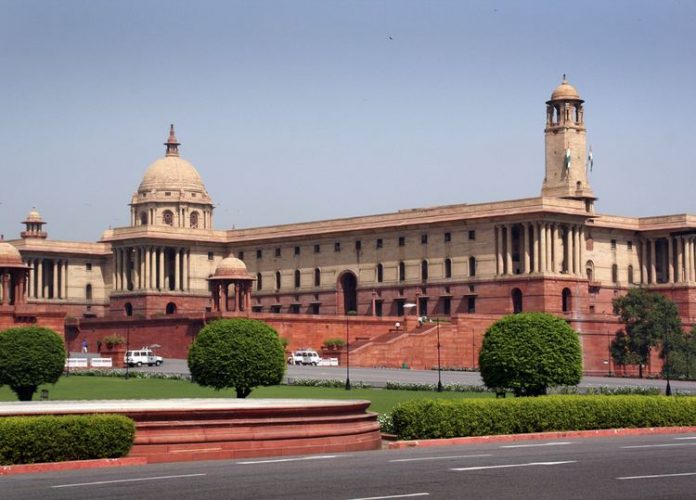The Ministry of Home Affairs has issued fresh Standard Operating Procedure (SOP) for maintaining supply of essential goods including health infrastructure and home delivery of food.
The notification issued by the MHA further says, “the guidelines annexed to the said order, under exception to lockdown measure, specify shops, including ration shops, dealing with food, groceries, fruits and vegetables, dairy and milk products, meat and fish, animal fodder, seeds and pesticides and home delivery of these essential goods shall be encouraged. Including food, pharmaceuticals, medical equipment through E-Commerce will remain operational.”
The notification further brings all enforcing authorities to notice that the restrictions have been imposed on the movement of people but not to that of ‘essential goods’. Hence it is pertinent to ensure availability of ‘essential goods’ to relieve the hardship faced by people during the period of lockdown.
According to the notification the following constituents of supply chain are allowed to operate:
A) Suppliers of essential goods, including restaurants supplying home delivery of cooked food items,
B) Facilities for storage of such essential goods which may be known as warehouse, godown etc.,
C) Transporters/drivers/loaders etc of essential goods from the place of manufacture to wholesale and/or retailers. Such transportation may involve intra-city, inter-state movement of essential goods and;
D) Manufacturing units of essential goods including drugs, pharmaceuticals, medical devices, their raw material and intermediates.
Accordingly, the following Standard operating procedure is suggested for ensuring smooth availability of essential good:
a) All facilities in the supply chain of essential goods, whether involved in manufacturing, wholesale or retail of such goods through local stores, large brick and mortar stores or E-Commerce companies should be allowed to operate ensuring strict social distancing.
b) All such facilities, as registered with the State Government/UT under the Shops and Establishment registration regime, which can be used to randomly verify the veracity of documents produced.
c) While warehousing facilities with wholesalers and retailers of essential goods might have non essential goods, they should not be closed down for the fact that non-essential items are also stored.
e) The retail end of the supply chain shall operate only in essential goods as specified in the orders at MHA. They will provide an undertaking to this effect and also allow subsequent audit of their records with a view to ensure compliance.
f) The employees or persons engaged in the supply chain shall be allowed to commute on the basis of e-pass or any other certification issued by the concerned local authority (ies). In addition, the said employee/ person shall carry a valid photo identification card.
g) In case of unorgansied sector, persons engaged in supply of essential goods may be allowed based on approval/ authorization issued by local authority (ies).
h) These commercial entities will ensure that they engage only bare minimum staff to supply essential goods only.
i) These facilities shall carry out regular health check-up of employees engaged and will provide them with proper protective gear.
j) The State Government shall open a 24*7 Control room to register complaints/ grievances and share these numbers widely.
-Shaheen Parween


